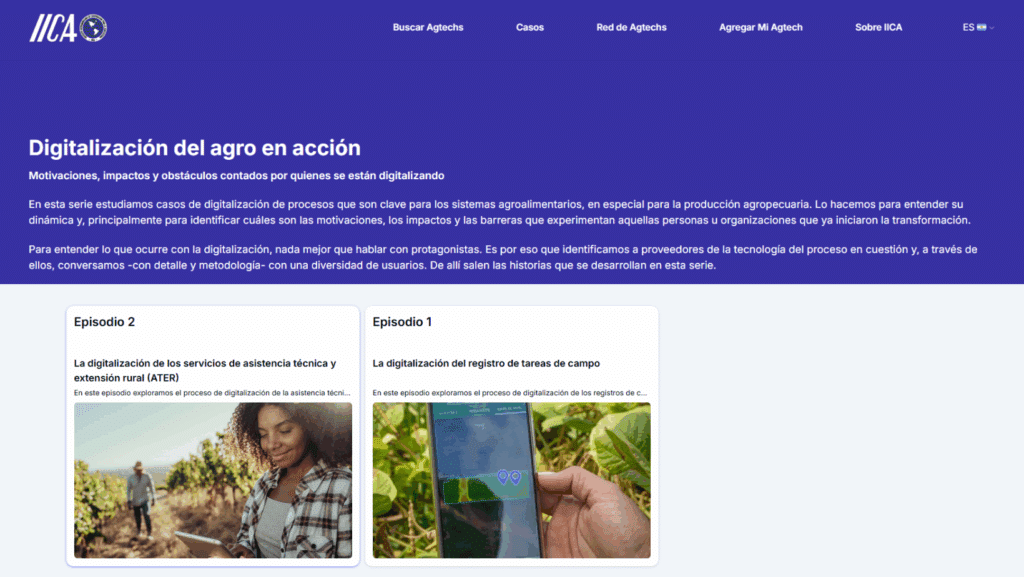
San Jose, 29 August 2025 (IICA) – Through its Digitalization of Agrifood Systems Program, the Inter-American Institute for Cooperation on Agriculture (IICA) launched a new line of work entitled “Agricultural Digitalization in Action”, aimed at identifying, documenting and disseminating real experiences with the digital transformation of agrifood systems of the Americas.
This action is part of one of the program’s strategic pillars, aimed at spotlighting specific technology adoption processes. The objective is twofold: on the one hand, to inspire producers, technical specialists, institutions and companies to take steps towards digitalization, and on the other, to identify good practices that can be used or adapted by other stakeholders.
“We are aiming to understand how digitalization takes place in practice: what motivates those who incorporate technologies, what barriers they face and what benefits they achieve. This knowledge, in turn, will enable us to build bridges, debunk myths and motivate others to move forward”, said program representatives.
The first two episodes published address two key processes: digitalization and management of field records, and digitalization of technical assistance and extension. In both cases, various users (producers, technical specialists, cooperative managers) who had effectively incorporated technologies to digitalize these processes were identified, and interviews and focus groups were conducted. The participants shared what motivated them to incorporate technologies, the challenges they faced, and the impacts they achieved.
The main findings for each of the aforementioned cases were presented in separate episodes. In the case of field data records, users were motivated by a specific need: to generate and organize data to make better decisions. They also explored different solutions, and then progressively adopted the various options through experimentation. As they gained confidence, they increased their use of the platform, discovered new features, and in many cases proposed improvements that were incorporated by the developers. Technical support from the provider was key to overcoming barriers.
With respect to technical assistance and extension, the experiences shared demonstrate that digital technologies can expand and strengthen agricultural extension and assistance services, reaching more producers, optimizing costs and facilitating access to high-level technical knowledge. Both public and private experiences show that hybrid systems, which combine digital tools with face-to-face interactions, offer better results and generate greater trust. Models that recognize the contribution of experts and maintain free or low-cost access for users can contribute to the sustainability of these initiatives. The diversity of contexts and profiles poses a challenge in terms of scaling up successful experiences using adequate formats for each producer.
Each case has been described by means of a technical report and podcast episode, available on the platform https://www.agtechamericas.net/cases.
Through this initiative, IICA is strengthening its commitment to dynamic, inclusive and results-driven digital transformation that contributes to enhancing the productivity, sustainability and resilience of agrifood systems in the region.
More information:
Institutional Communication Division.
comunicacion.institucional@iica.int











